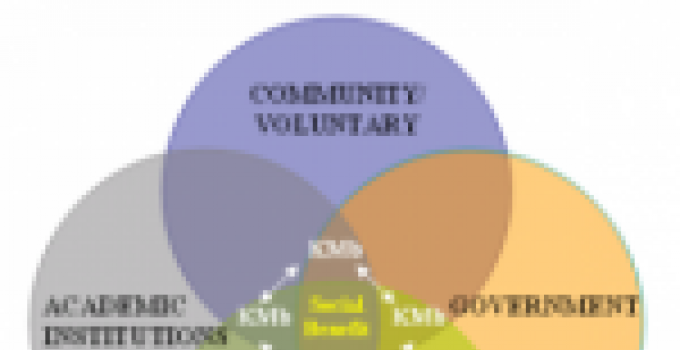After years of concentrating research funding on science and technology, Singapore last week announced a major rise in funding for social science and humanities research worth SG$350 million (US$252 million) over the next five years – an increase of 45% compared to the Ministry of Education spending on research in these areas over the previous five years.
The funding boost also signals a push towards more multidisciplinary research in Singapore. In the past the social sciences had been the poor cousins of basic and applied research in the sciences. Now social science research will be better funded as part of bigger research projects that will include the impact of science and technology on societies.
Announcing the new funding Deputy Prime Minister Tharman Shanmugaratnam said in a speech last Monday: “We have to build a stronger core of local researchers and thought leaders in the social sciences and humanities.”
He said he hoped more Singaporeans would see social science research as “a viable career option in academia”.
Singapore’s new Social Science Research Council or SSRC set up in January this year is currently considering some 70 proposals from public higher education institutions and postgraduate research centres in Singapore under its first grant call issued in May.
The move to set up the SSRC signalled a shift away from a heavy emphasis on science and technology-led growth and towards more research that would improve quality of life in Singapore and in the Asian region. In particular the council’s grants would focus on broad themes such as building identities, social integration and resilience and how to develop new models of training and education, according to official statements.
SSRC Chairman Peter Ho said: “You might have a technical solution to the problem. That technical solution needs to be complemented and supported by an insight into how society might respond.”
Apart from smaller grants of up to SG$1 million for up to three years, the SSRC expects to fund larger scale interdisciplinary research with grants of up to SG$10 million (US$7.2 million) over three years.
Tharman said the SSRC would also help build global networks of researchers and policy-makers, and added that the SSRC had started to build collaborations with organisations around the world such as the Social Science Research Council in New York and the Center for Advanced Study in the Behavioral Sciences at Stanford University in the United States.
Impact of new funding
In an indication of the impact of the new funding on Singapore’s research and higher education landscape, one of Singapore’s top universities, Nanyang Technological University or NTU, announced on 31 October it would set up two new schools, for humanities and social sciences respectively, in the coming year to accommodate more interdisciplinary programmes and research.
“Humanities and social sciences at NTU are poised for further growth. The establishment of the two new schools will enable the strengthening of existing minors such as urban and environmental studies and global Asia, and the introduction of new programmes such as science, technology and society, and health and society,” NTU said in a statement.
NTU already teaches languages, linguistics history, philosophy and psychology, public policy and sociology under its existing combined School of Humanities and Social Sciences.
NTU President Bertil Andersson said: “Although NTU is known as a science and technology university, it does not mean that humanities and social sciences are secondary. In today’s world, it is ever so important to be interdisciplinary and cross-disciplinary in our approach to work, and [to] the world at large.”
He added: “NTU’s big push in this area will boost students’ ability to think critically about the tough choices facing society in a rapidly changing world driven by technology, global connectedness and climate change.”
Ageing in Asia
A major area of social science research would be on ageing populations – an issue that is affecting a number of Asian countries with declining birth-rates over the past decade or more, including China, South Korea and Singapore, as well as Japan.
Alan Chan, the dean of the current College of Humanities, Arts and Social Sciences at NTU, said “ageing is a serious issue for Singapore and many other societies. Technology will play a vital role in addressing the challenges of an ageing population, but technology alone cannot bring about the kind of flourishing and caring society we all desire.
“There is a need to understand the complex psychological and behavioural conditions and the kind of intervention that is required, for example, to enable healthy and active ageing,” he said.
14th November 2016
http://www.universityworldnews.com/article.php?story=20161107173419721

